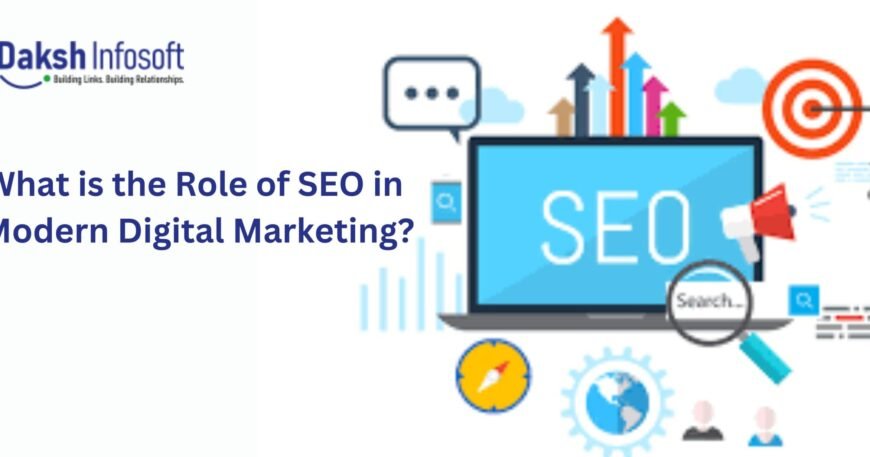The Role of SEO in Modern Digital Marketing Explained
In today’s digital landscape, the importance of Search Engine Optimization (SEO) in digital marketing cannot be overstated. With the rapid evolution of online consumer behavior, businesses must strategically position themselves in search engine results to stand out and drive organic traffic. This article delves into the crucial role SEO plays in modern digital marketing, its components, and strategies that can enhance your online visibility.
What is SEO?
SEO, or Search Engine Optimization, is the process of optimizing a website to improve its visibility on search engines like Google, Bing, and Yahoo. The goal of SEO is to rank higher in search engine results pages (SERPs) for targeted keywords or phrases, thus increasing organic traffic and enhancing user engagement.
Why is SEO Essential in Digital Marketing?
-
Increased Visibility and Web Traffic
SEO enhances your website’s visibility, allowing potential customers to discover your content, products, or services. Higher rankings in SERPs translate to increased click-through rates (CTR), leading to more web traffic. -
Builds Credibility and Trust
Websites that rank higher on search engines are often perceived as more credible and trustworthy. When users see your site among the top results, they are more likely to trust your brand, fostering customer loyalty. -
Cost-Effective Marketing
Unlike paid advertising, organic SEO efforts result in long-term traffic and brand visibility. While paid ads generate immediate results, SEO provides sustainable growth without ongoing ad spend. -
Enhanced User Experience
Effective SEO involves optimizing website structure and content, which enhances user experience. A well-organized, fast-loading, and mobile-friendly site keeps visitors engaged and encourages them to return. -
Targeted Traffic Generation
SEO allows businesses to target specific keywords that potential customers are searching for. This targeting ensures that the traffic generated is highly relevant, leading to better conversion rates.
Key SEO Components
-
Keyword Research
Understanding what your audience is searching for is the cornerstone of effective SEO. Keyword research helps identify the terms and phrases that potential customers use, enabling businesses to tailor their content accordingly. -
On-Page SEO
On-page SEO focuses on optimizing individual pages on your website. This includes utilizing keywords effectively, optimizing meta tags, enhancing multimedia content, and ensuring the website is user-friendly. -
Off-Page SEO
Off-page SEO refers to all activities conducted outside your website that influence your search rankings. This includes building backlinks from reputable sites, social media engagement, and influencer marketing, all of which boost your site’s authority. -
Technical SEO
Technical SEO ensures that your website meets the technical requirements of search engines. This includes optimizing site speed, ensuring mobile compatibility, improving crawlability, and implementing a logical sitemap. -
Content Creation
Quality content is at the heart of SEO. Creating valuable, relevant, and engaging content not only attracts visitors but also encourages them to share and link back to your site, improving your authority and visibility.
SEO Strategies for Success
-
Regular Content Updates
Search engines favor fresh content. Regularly updating your website with new articles, blog posts, or product information keeps your site relevant and encourages frequent visits from users and search engines alike. -
Utilize Local SEO
For businesses targeting local customers, optimizing for local SEO is vital. This includes creating a Google My Business profile, utilizing local keywords, and encouraging customer reviews. -
Monitor and Analyze Performance
Use tools like Google Analytics and Google Search Console to monitor your website’s performance. Analyze metrics such as traffic sources, popular content, and conversion rates to inform your SEO strategies. -
Optimize for Voice Search
With the rise of voice-activated devices, optimizing for voice search is becoming increasingly important. Focus on conversational keywords and phrases that align with how people speak. -
Engagement on Social Media
While social media signals do not directly impact SEO rankings, they can drive traffic to your website and enhance brand visibility. Actively engage with your followers and share quality content to promote your brand.
Conclusion
The role of SEO in modern digital marketing is pivotal. By understanding its significance and implementing effective strategies, businesses can improve their online presence, attract more traffic, and ultimately drive conversions. Investing in SEO is not just an option; it’s a necessity for brands looking to thrive in a competitive digital environment. As technology continues to evolve, staying abreast of SEO trends will ensure your marketing efforts remain effective and impactful.





